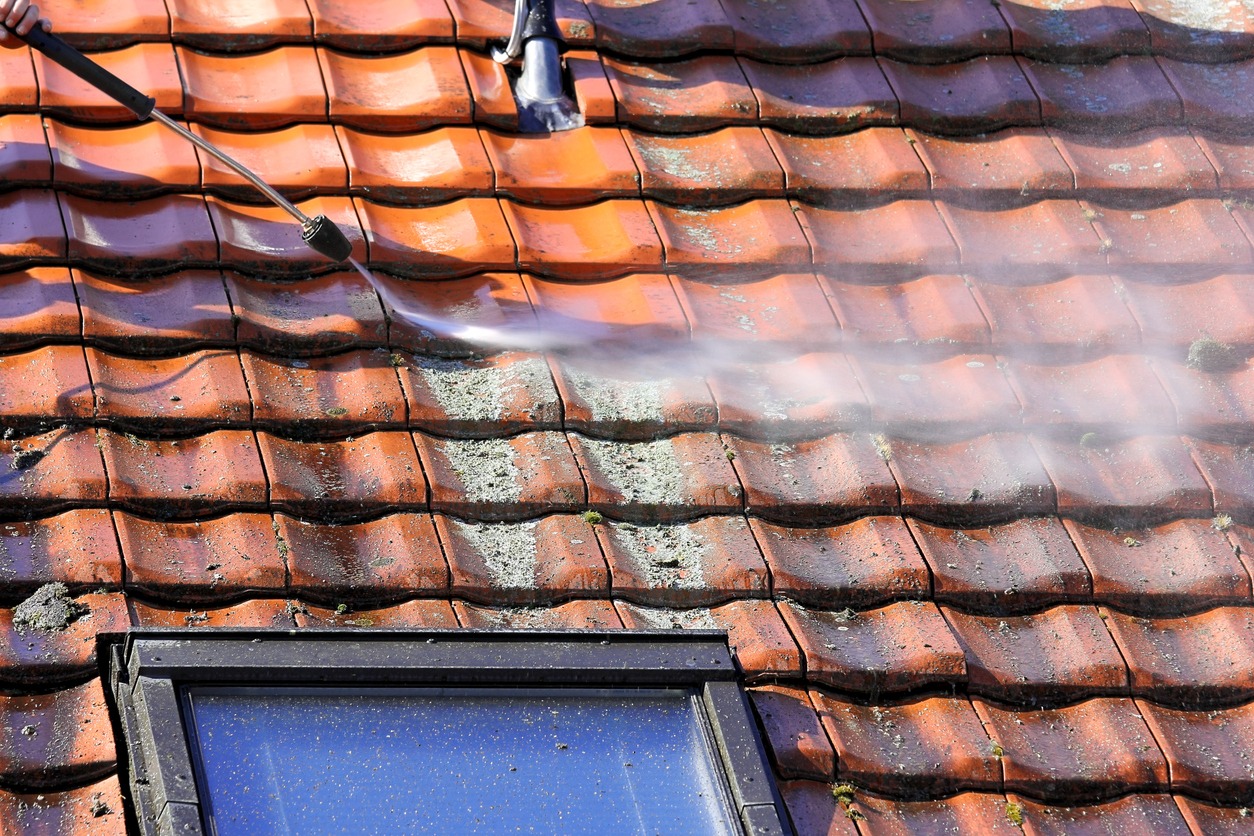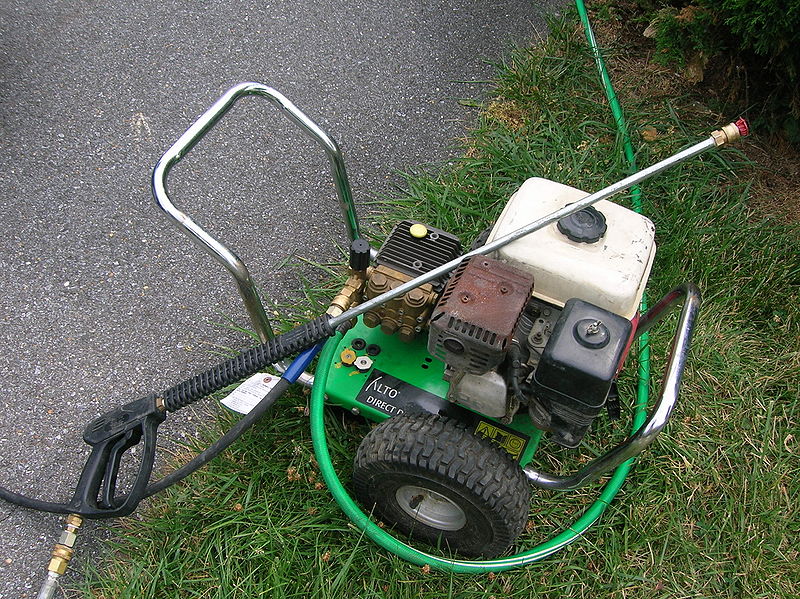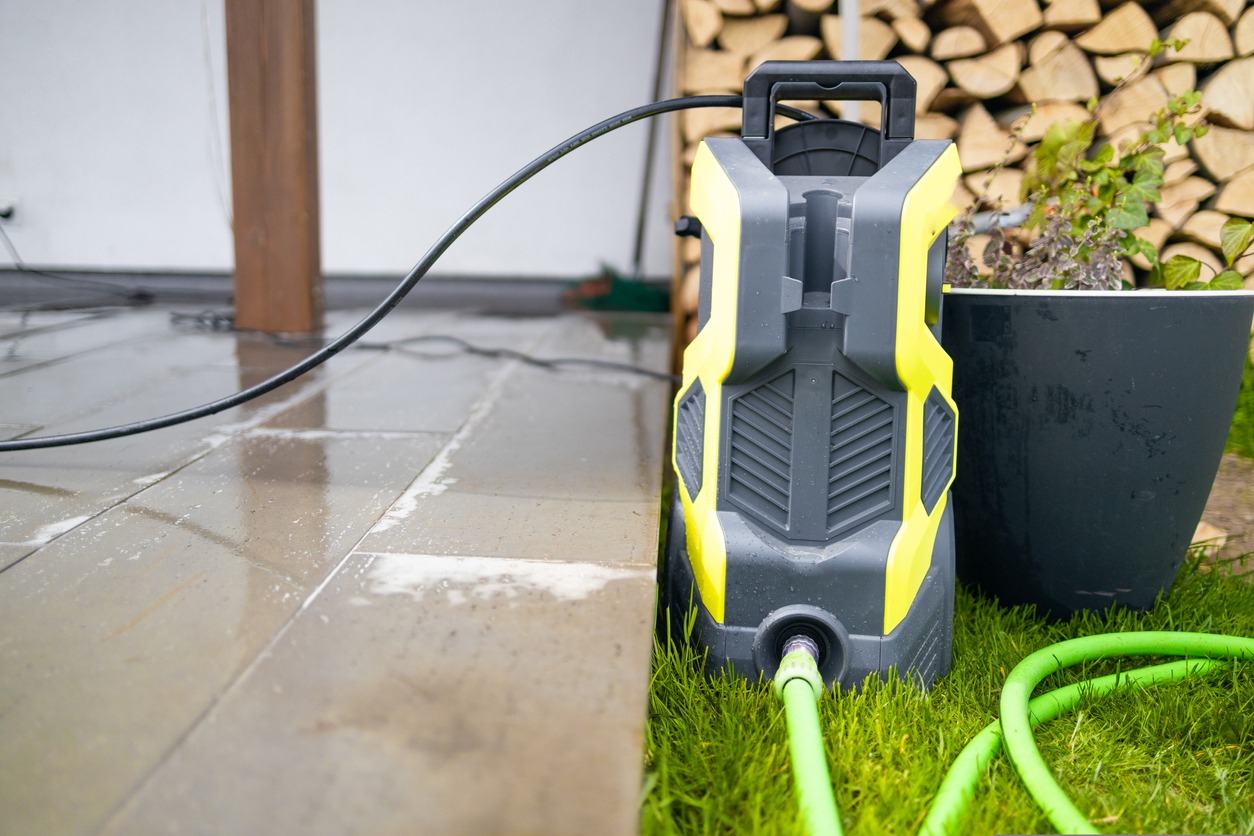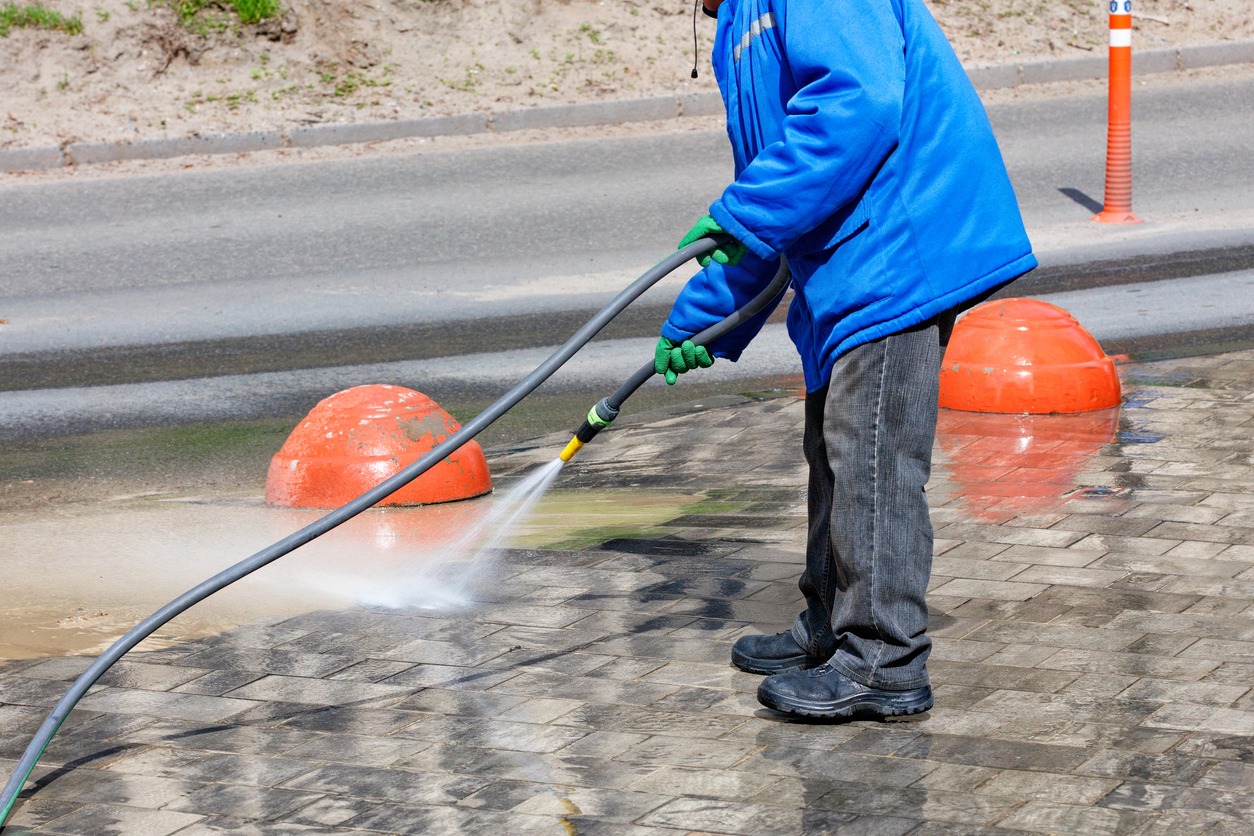Outdoor cleaning projects like dirty patio furniture, driveways, decks, sidings, and fences can seem daunting, especially if you have little time. However, there is one tool that can clean all of these surfaces quickly and efficiently.
A power washer, also known as a pressure washer, is a tool that pressurizes water and propels it in a powerful jet. Some power washers also feature a detergent injection. This pressurized stream of water makes it incredibly easier to clean dirt, grime, mold, mildew, and other stains that are otherwise very difficult to manually clean with soap, brush, and scrubber. This post focuses on important things you need to consider before choosing a power washer for home use.
Important Terminologies
Before discussing the factors you need to consider when buying a pressure washer, here are some essential terminologies to know.
PSI
Stands for Pounds per Square Inch; it is the measure of pressure provided by a power washer. The greater the PSI value, the more pressure a washer can wash can supply.
GPM
Stands for Gallons per Minute; it is the rate of water flowing through a pressure washer. A higher GPM means that a pressure washer supplies more water in the same time as compared to a washer with a lower GPM. Higher GPM pressure washers can help clean surfaces faster.
Cleaning Units
The cleaning unit is the quantity that reflects how efficient a power washer is. It takes into account both the PSI and GPM. Mathematically, it is written as CU=PSI x GPM. This shows that if either or both values are high, the pressure washer will have more cleaning units and, as a result, higher cleaning efficiency.
Things to Consider When Buying a Pressure Washer
Here are some of the most important factors you need to consider when buying a pressure washer for home use.
Types of pressure washers
Gas Pressure Washers
Gas pressure washers use gasoline to power the engine that drives a high-power water pump. The pump pressurizes the water coming in from the source and passes pressurized water through a high-pressure hose to the nozzle.
Gasoline-powered power washers are generally more powerful and portable, as they don’t need to be constantly connected to a power supply. They are well-suited for professional cleaning jobs that demand a lot of power, such as paint removal.
Pros and Cons of Gas Pressure Washers
|
Pros |
Cons |
|
● Better portability ● Faster and more powerful |
● Noisy ● Costly because of fuel and maintenance ● Heavy ● Emissions can impact the environment negatively |
Generally speaking, choosing a gas pressure washer for home use might not be a good idea, as most eclectic pressure washers can easily handle DIY jobs like patio, deck, driveway, and furniture cleaning. A gas engine’s fumes can also harm kids and pets.
Electric Pressure Washers
An electric pressure washer uses an electric motor that powers a high-pressure water pump. Like in a gas power washer, the water pump pressurizes water from the source and sends it down the output hose and to the nozzle.
Most general-purpose pressure washers are electric, and some are even suitable for heavy-duty tasks. As a homeowner, you can clean anything from a driveway to a wooden patio with the help of an electric washer by simply connecting the cord to a power outlet.
One downside of using electric power washers is compromised portability. Not all electric washers can be connected to an extension cord. However, some models also support special-purpose splash-proof extension cords.
Pros and Cons of Electric Pressure Washers
|
Pros |
Cons |
|
● Quieter ● Safer for home use ● Moderate to high power ● More affordable than gas power washers ● Easier to operate |
● Limited portability ● Relatively slower and less powerful than gas pressure washers
|
Battery-powered Pressure Washers
These washers drive power from Li-ion batteries and offer reduced pressure and force. This makes them capable of handling minimal cleaning jobs such as washing cars. They are not an alternative to a full-fledged electric or gas power washer. Where most battery pressure washers max out at 500 PSI, electric washers can go up to 2300 PSI and even more.
Choosing Pressure Washer Nozzles
Choosing the proper nozzle for pressure washing is essential for a safe and accurate cleaning job. The nozzle is fixed at the tip of the pressure washer wand. It allows you to narrow or widen the spray angle to spread or focus the pressure at one point. The narrower the nozzle angle, the tougher stains it can clean. Lower-degree nozzles create a highly focused and pressurized stream of water that can even cut down skin, wood, fabric, rubber, etc.
Some pressure washers also feature an adjustable nozzle instead of replaceable nozzles. To make pressure washing a safer experience for home use, it is recommended never to use the red (zero-degree) nozzle or setting in an adjustable nozzle.
- Red Nozzle: Gives the most concentrated and powerful stream with a zero-degree angle.
- Yellow Nozzle: Gives a stream at an angle of 15 degrees. Best for heavy-duty cleaning.
- Green Nozzle: Gives a stream at an angle of 25 degrees. Best for general moderate-duty cleaning.
- White Nozzle: Gives a stream at an angle of 40 degrees. Best for light-duty and easily-damaged surfaces like a car body or patio furniture.
- Black Nozzle: Gives a stream at an angle of 65 degrees. Best for low-pressure tasks like soap/detergent application.
For home use, it is best to invest in a green, white, and a black nozzle to cover a wide range of applications.
Cleaning Requirements
Let us now break down the selection of pressure washers based on cleaning requirements such as light, medium, and heavy duty.
Light Duty Pressure Washers
If you’re only looking to handle smaller jobs around the home, such as cleaning cars, grills, or furniture, choosing a light-duty power washer with about 2000 PSI and 1.5-2 GPM is the most suitable. However, it is always wise to go beyond your immediate requirements and invest in a pressure washer that can accommodate tougher tasks.
Medium Duty Pressure Washers
Medium-duty pressure washers are the most appropriate for homeowners. They can deliver between 1900-2800 PSI and 1-3 GPM. They can handle moderate to heavy-duty tasks such as cleaning patios and decks. With appropriate nozzle settings, they can also handle lighter tasks.
Heavy Duty Pressure Washers
Manufactured for commercial use, these machines start from 2800 PSI and 2+ GPM. They are durable, extremely powerful, and suitable for large-scale jobs like cleaning driveways or removing paint/graffiti. They are inappropriate for home use because of safety risks involved in using them at home.
Hot Vs. Cold Water Pressure Washers
Pressure washers are also classified on whether they use hot or cold water to carry out cleaning tasks. Cold water washers are suitable for the majority of home cleaning tasks. They are available in electric and gas variants. Hot water pressure washers are most commonly used in industrial or commercial applications. They are more expensive and difficult to operate.
Key Features to Consider
Here are some other features to consider that can make your pressure-washing experience more comfortable and safer.
Hose length
The hose connects from your source to the washer, and from the washer to the gun. Its length is usually calculated in meters. For home use, investing in a longer hose is better, especially when using an electric pressure washer with a limited cord length.
Wands
Wands or lances are metallic attachments that connect to the pressure washer gun. The longer wand will have relatively less pressure, and vice versa.
Auto Start & Stop Feature
If possible, go for a washer with a start/stop trigger featured on the gun. It will be convenient as you won’t have to walk to the pressure washer whenever you want to turn off the water. It will also reduce wastage of water and detergent. However, keeping the pump running for a long time is not a good idea when you’re not using the gun.
Detergent Injection and Tanks
Many power washers come fitted with detergent tanks and injection mechanisms that make cleaning a more comfortable and convenient experience.
FAQs
1. Can a high-power pressure washer damage surfaces like concrete?
A higher-power and commercial-grade pressure washer coupled with a zero-degree nozzle can damage, penetrate, and dent surfaces like concrete, metal, rubber, skin, and wood. The key to figuring out the perfect nozzle angle without damaging anything is starting with the widest angle and gradually narrowing it down based on the requirement.
2. Is protective gear necessary when using a pressure washer?
Pressure washers are powerful devices, whether you’re working with a commercial or a mid-duty model. Always ensure safety by wearing PPE such as safety glasses, cut-resistant gloves, and head protection. Follow the manufacturer’s instructions for operation depending on the type, pressure rating, and nozzle you use.
3. Is there a difference between a pressure washer and a power washer?
These terms can be used interchangeably, but technically there is a difference. Power washers feature a heating element to heat the water before spraying it. This makes them capable of cleaning surfaces with living bacteria such as mold. On the other hand, pressure washers are machines that use ordinary water. However, it’s not a standard feature on all power washers and only specialized power washers have it.
Final Words
A high-quality power washer is one of the must-have power tools you need. It can speed up your cleaning projects and save precious time and energy. Make sure to follow these tips for a smooth cleaning experience:
- Always spot-test a small area, especially when using a new nozzle or pressure washer.
- Always read instructions for operation before using a new pressure washer.
- Look for features like an extended hose and extension cord capability to make the cleaning experience more comfortable.
- Always start with the widest-angle nozzle and move towards a narrower option if needed.
Ultimately, this guide will make it easier to select a power washer for home use based on your requirements and preferences.




